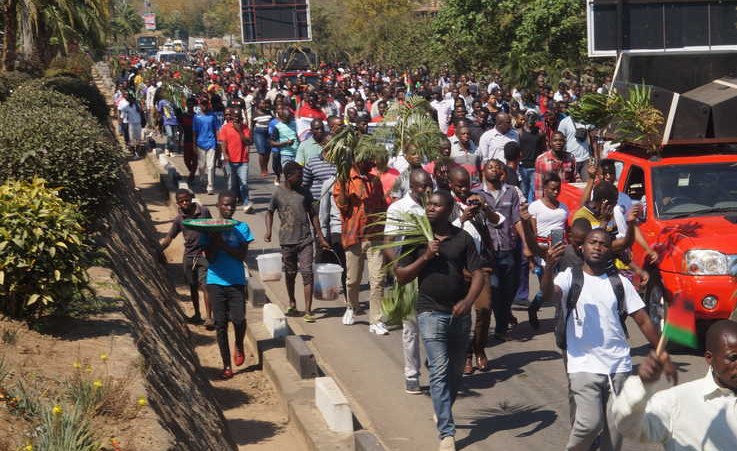The police have issued a strong warning to religious leaders across the country, urging them to refrain from making public predictions or “prophecies” about who will win the upcoming September presidential election. Authorities say such pronouncements could inflame political tensions and undermine national peace.
Speaking during a gathering aimed at promoting peaceful elections, Police Superintendent Martin Mwanyongo described the wave of election-related prophecies as a “recipe for chaos.”
“Religious leaders must act responsibly,” Mwanyongo said. “We understand freedom of speech and worship, but when prophecies start sounding like political endorsements or threats, they disturb the peace. We urge all religious figures to stick to their spiritual roles and avoid divisive messages.”
The police say some recent prophecies have caused confusion and could potentially provoke violence among politically charged supporters who view spiritual declarations as guarantees of victory.
In his remarks, Superintendent Mwanyongo also directed comments at journalists, cautioning them against portraying law enforcement agencies as enemies of democracy. “The police are not villains. We are here to protect all citizens—regardless of political affiliation. We want the media to support efforts to ensure a free, fair, and peaceful election,” he said.
The statement comes amid mounting tensions as the country prepares for its closely watched presidential poll. Some political supporters have already begun clashing at campaign rallies, while religious leaders have been widely quoted claiming divine revelation about the eventual outcome.
Critics, however, have slammed the police for focusing on religious figures instead of taking concrete action against violent attacks on political rallies. Activists and opposition figures have accused the police of being “selective” in their law enforcement.
“Instead of warning church leaders about their sermons, why not go after the machete-wielding thugs that are disrupting peaceful gatherings?” said one political analyst. “People want security, not lectures. Religious freedom must be protected, but so must human lives and the integrity of our democracy.”
Some media rights organisations have also raised concerns about the tone used by authorities toward journalists. They warn that implying the press is biased could lead to intimidation of reporters covering politically sensitive issues.
In response to the criticism, police officials say their goal is to maintain law and order—not to silence free expression. They urged all stakeholders—religious bodies, political parties, civil society, and media outlets—to work together and avoid actions that could fuel division or violence during the election period.
With just a few months to go before voters head to the polls, the country faces rising pressure to avoid a repeat of previous post-election unrests. Faith leaders have traditionally played a significant role in urging peace and calm, but recent developments have placed them under scrutiny for appearing to take sides.
Superintendent Mwanyongo concluded by saying, “This election belongs to the people. Let’s give them space to choose, without undue influence from the pulpit or threats on the streets.”
